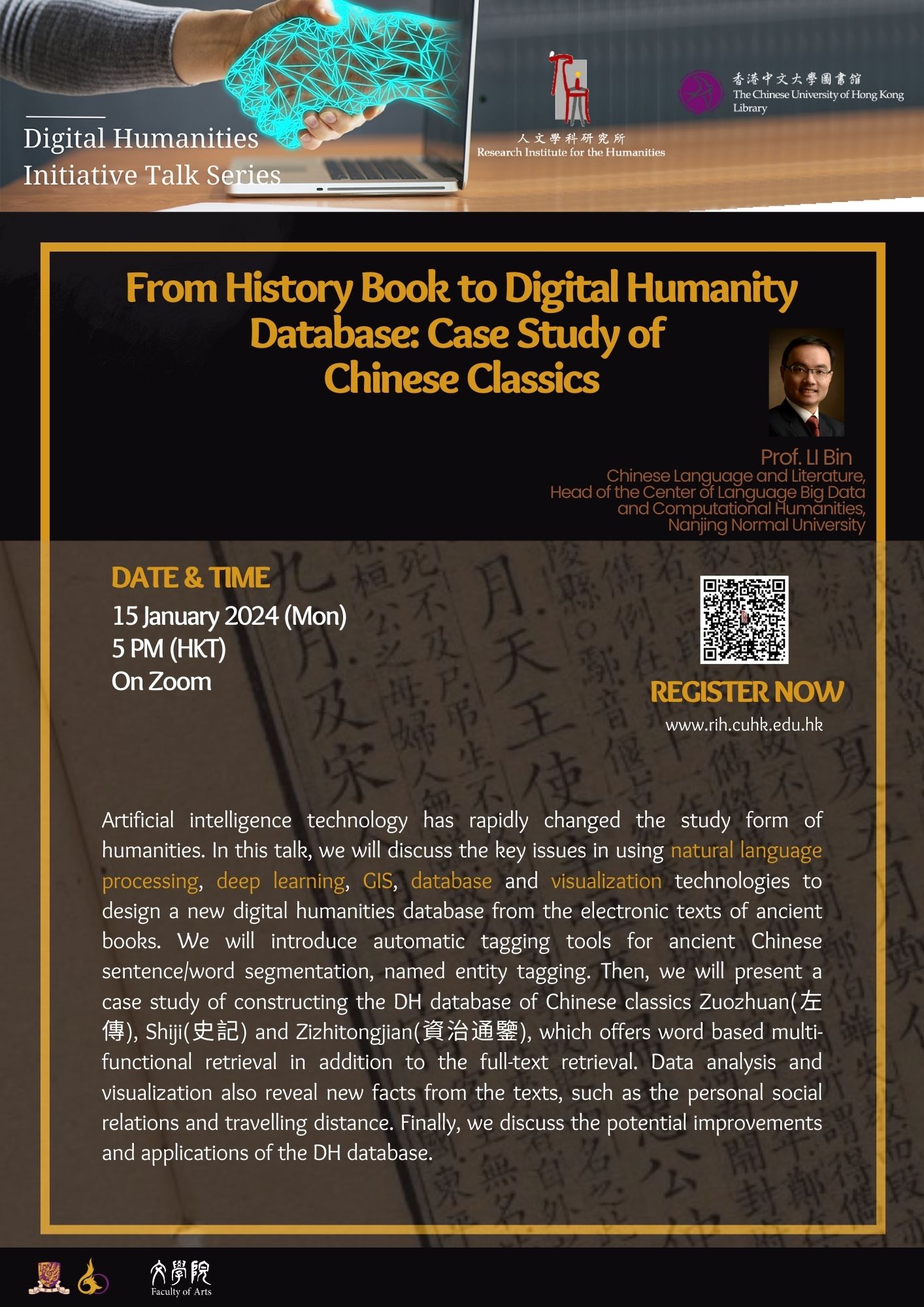Digital Humanities Initiatives Talk Series – From History Book to Digital Humanity Database: Case Study of Chinese Classics
Date: 15 January 2024 (Mon)
Time: 5 pm (HKT)
On Zoom
Language: English
Please click here to register
Speaker:
Prof. LI Bin
School of Chinese Language and Literature,
Nanjing Normal University
About the talk:
Artificial intelligence technology has rapidly changed the study form of humanities. In this presentation, we will discuss the key issues in using natural language processing, deep learning, GIS, database and visualization technologies to design a new digital humanities database from the electronic texts of ancient books. We will introduce automatic tagging tools for ancient Chinese sentence/word segmentation, named entity tagging. Then, we will present a case study of constructing the DH database of Chinese classics Zuozhuan(左傳), Shiji(史記) and Zizhitongjian(資治通鑒), which offers word based multi-functional retrieval in addition to the full-text retrieval. Data analysis and visualization also reveal new facts from the texts, such as the personal social relations and travelling distance. Finally, we discuss the potential improvements and applications of the DH database.
About the speaker:
Prof. LI Bin is a professor at the School of Chinese Language and Literature at Nanjing Normal University, and head of the Center of Language Big Data and Computational Humanities. He teaches Chinese information processing, syntax, data structures, mathematical logic, artificial intelligence, digital humanities and database applications. He earned Master’s and Ph.D. degrees from the School of Chinese Language and Literature at Nanjing Normal University. He was a postdoctoral fellow in the Department of Computer Science and Technology at Nanjing University from 2010 to 2013, a visiting scholar at the Computer Science Department at Brandeis University in the United States in 2015, and a visiting scholar at the Institute for Quantitative Social Science at Harvard University in 2019. His research interests include lexical analysis, cognitive semantic computing, corpus technology, ancient languages and digital humanities. He has published three books and over 70 papers.


